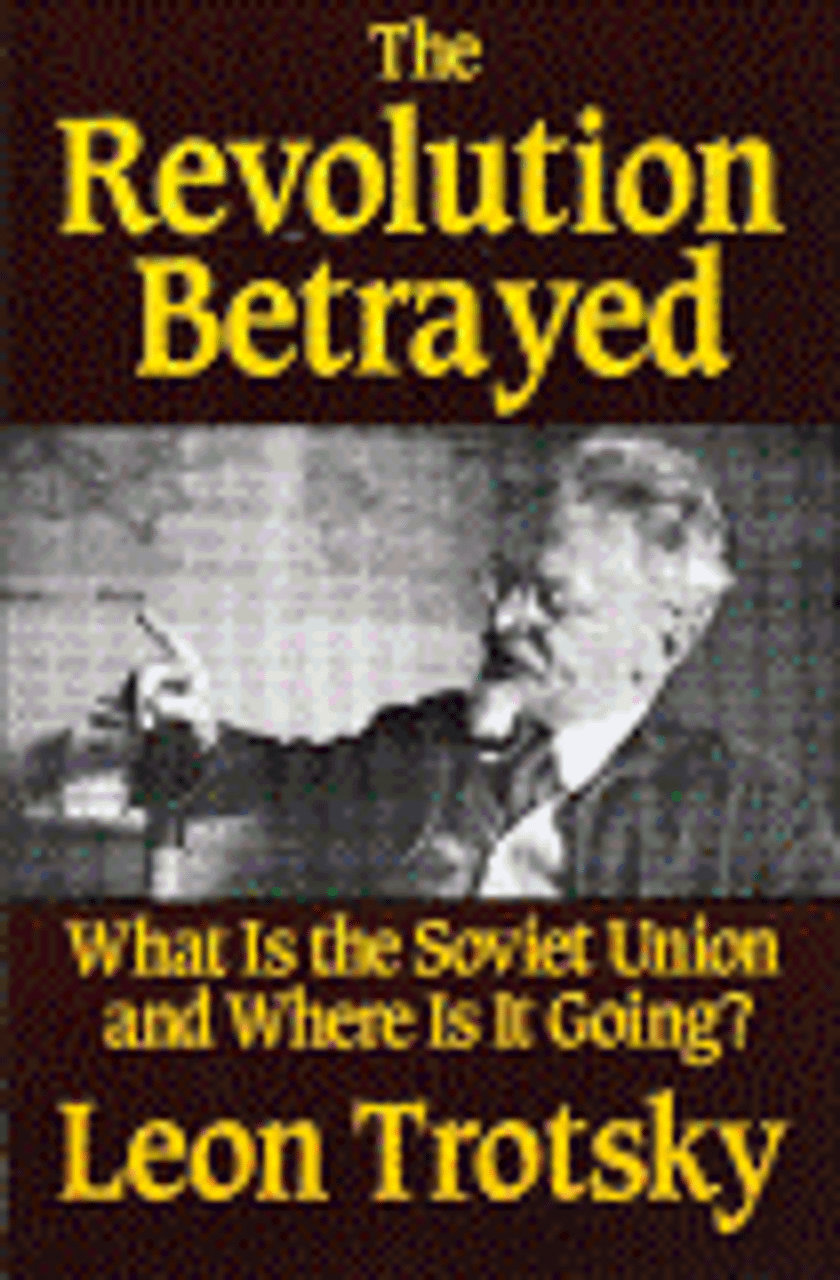Mehring Books is continuing its Winter Recommended Reading Series, in which it invites WSWS writers to share their thoughts with readers about works of Marxist literature that have influenced them and to explain why. This week’s recommendation is from Tom Eley, a staff writer for the WSWS whose articles cover a range of issues related to domestic and international politics, social conditions, and history. To view last week’s recommendation by David Walsh, Arts Editor of the WSWS, see: "Reading Voronsky on art today is to breathe fresh air".
I've recently been inspired to read again Leon Trotsky's The Revolution Betrayed, which surely ranks among the greatest political works of the 20th century. The book presents the most devastating rebuke to Trotsky’s recent biographers, who have attempted to falsify his long struggle against Stalinism. Written in 1936 from exile in the heat of his battle with Stalin—who at the time was preparing the first of the great purges of the Old Bolshevik leadership—Trotsky subjected the Soviet Union to what remains to this day its most accurate and prescient analysis.
Trotsky’s central argument in The Revolution Betrayed has been thoroughly vindicated. With painstaking analysis laid out in eleven chapters, Trotsky showed that the Soviet Union was neither socialist nor capitalist, but a transitional society with an as-yet undetermined fate. Either the working class would overthrow the ruling bureaucracy in a political revolution—an outcome which would depend upon the ability of the international working class to break from the grip of Stalinism—or the bureaucracy would eventually play the critical role in the destruction of the Soviet Union. This thesis was tragically confirmed with the bureaucracy’s cultivation of capitalism under Gorbachev in the 1980s (‘glasnost’, perestroika) and with the disintegration of the USSR in 1991. This volume was produced as these latter events were still unfolding, with what itself turned out to be a prescient introduction by Socialist Equality Party chairman David North.
The introduction serves the book well, describing Trotsky’s method while placing his analysis in historical context and tracing its political implications. I hope and I believe The Revolution Betrayed will find a wide readership in coming years, as it becomes increasingly urgent to understand the great political problem of the 20th century—the crisis of the revolutionary leadership—in order to overcome the challenges of the 21st. For these and many other reasons, I highly recommend this volume.
Copies of The Revolution Betrayed can be purchased online through Mehring Books by clicking here.
David North visited Trotsky’s final residence during his exile (1929-33) on the island of Prinkipo, and paid tribute to the life of the great theorist of world socialist revolution.

